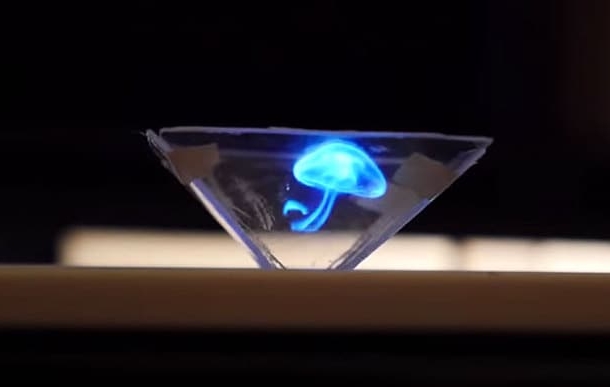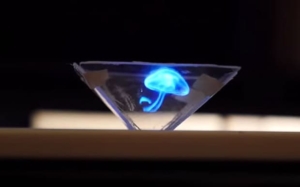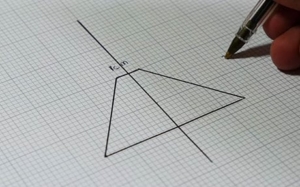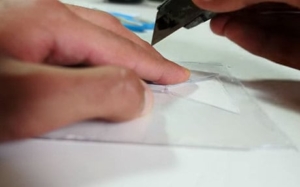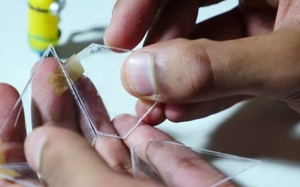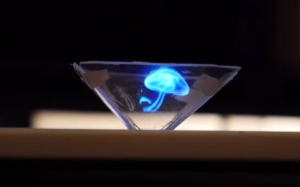The video author used his smartphone and
basic household materials to project a ghostly 3D image floating about
the phone’s display, thanks to a specialised four-way holographic video.
You will need:
- Graph paper
- A CD case
- A pen
- A pair of scissors
- Sellotape or superglue
- A craft knife or glass cutter
- Your smartphone
How to make the projector:
- Sketch out a basic trapezoid shape on the graph paper using the dimensions 1xm x 3.5cm x 6cm.
- Snap off the shallow sides of the CD case
and carefully trace around the paper template to cut the shape into the
transparent plastic. Repeat four times.
- Tape the four shapes together, with the longest sides facing the top of the structure.
- Select the holograph-specific video you’d like to project – this is a good example.
- Place the shape over a video playing on your smartphone to create a mirrored, 3D hologram.
Holograms have yet to fully make the leap from science fiction to mainstream consumer use. Amazon’s Fire Phone
was touted to be the first smartphone with fully holographic
capabilities, thanks to four ultra-low power specialized cameras and
four infrared LEDs within the display. The resulting effect is more of
creating the impression the image you’re looking at is shifting as you
move your head, rather than a projected image.
was touted to be the first smartphone with fully holographic
capabilities, thanks to four ultra-low power specialized cameras and
four infrared LEDs within the display. The resulting effect is more of
creating the impression the image you’re looking at is shifting as you
move your head, rather than a projected image.
Microsoft unveiled its augmented reality headset HoloLens in January,
which overlays holograms into your real-time environment. Users can
create their own holograms within the company’s HoloStudio and 3D print
the finished result.
Alex Kipman, who was one of the key developers behind the Xbox’s Kinect sensor, said the HoloLens was the “first fully untethered holographic computer”.

